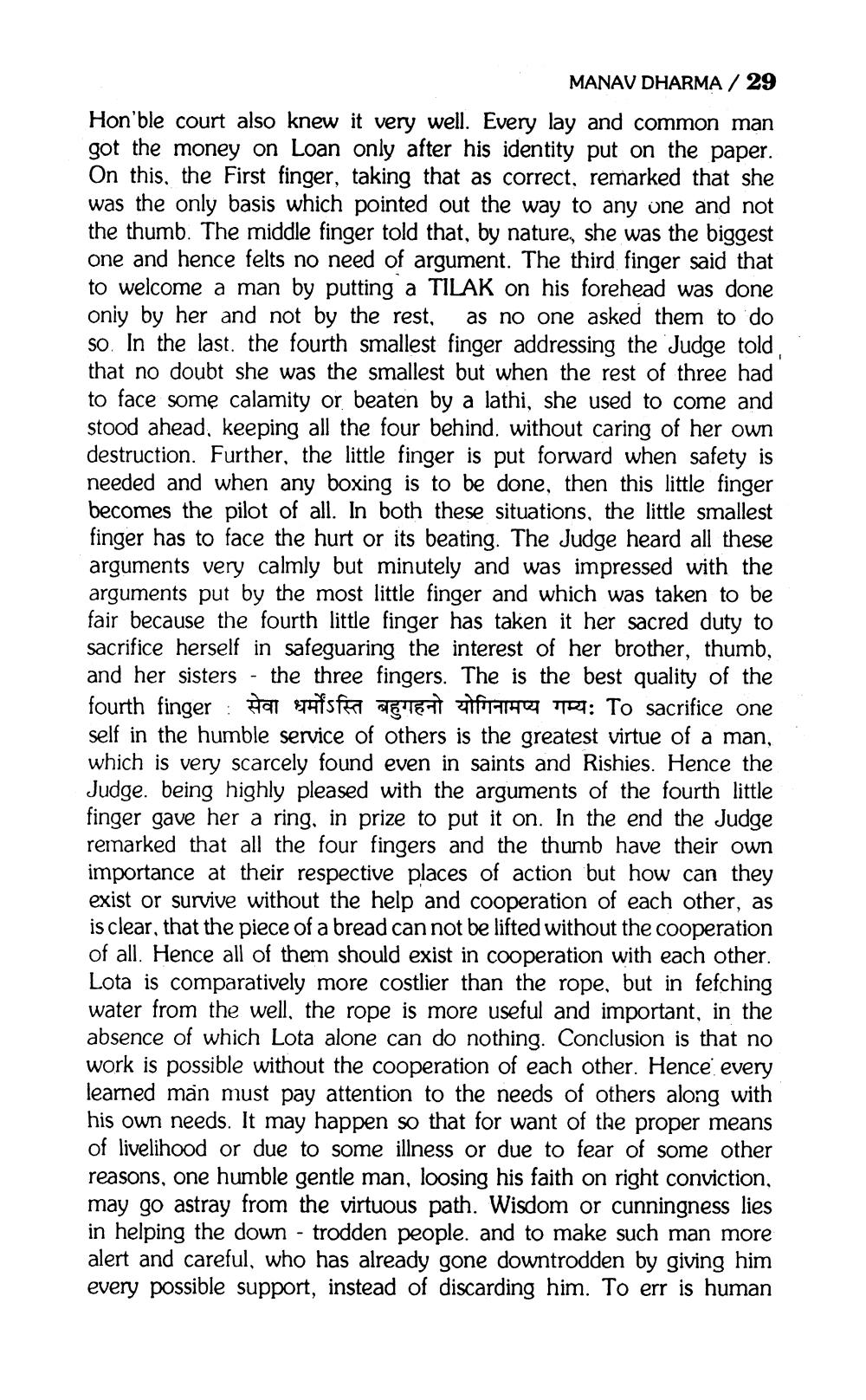________________
MANAV DHARMA / 29 Hon'ble court also knew it very well. Every lay and common man got the money on Loan only after his identity put on the paper. On this, the First finger, taking that as correct, remarked that she was the only basis which pointed out the way to any one and not the thumb. The middle finger told that, by nature, she was the biggest one and hence felts no need of argument. The third finger said that to welcome a man by putting a TILAK on his forehead was done only by her and not by the rest, as no one asked them to do so. In the last. the fourth smallest finger addressing the Judge told, that no doubt she was the smallest but when the rest of three had to face some calamity or beaten by a lathi, she used to come and stood ahead, keeping all the four behind. without caring of her own destruction. Further, the little finger is put forward when safety is needed and when any boxing is to be done, then this little finger becomes the pilot of all. In both these situations, the little smallest finger has to face the hurt or its beating. The Judge heard all these arguments very calmly but minutely and was impressed with the arguments put by the most little finger and which was taken to be fair because the fourth little finger has taken it her sacred duty to sacrifice herself in safeguaring the interest of her brother, thumb, and her sisters the three fingers. The is the best quality of the fourth finger : सेवा धर्मोऽस्ति बहुगहनो योगिनामप्य गम्य: To sacrifice one self in the humble service of others is the greatest virtue of a man, which is very scarcely found even in saints and Rishies. Hence the Judge. being highly pleased with the arguments of the fourth little finger gave her a ring, in prize to put it on. In the end the Judge remarked that all the four fingers and the thumb have their own importance at their respective places of action but how can they exist or survive without the help and cooperation of each other, as is clear, that the piece of a bread can not be lifted without the cooperation of all. Hence all of them should exist in cooperation with each other. Lota is comparatively more costlier than the rope, but in fefching water from the well, the rope is more useful and important, in the absence of which Lota alone can do nothing. Conclusion is that no work is possible without the cooperation of each other. Hence every learned man must pay attention to the needs of others along with his own needs. It may happen so that for want of the proper means of livelihood or due to some illness or due to fear of some other reasons, one humble gentle man, loosing his faith on right conviction, may go astray from the virtuous path. Wisdom or cunningness lies in helping the down trodden people. and to make such man more alert and careful, who has already gone downtrodden by giving him every possible support, instead of discarding him. To err is human
-




